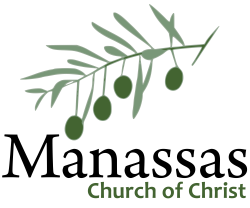 From the Archives from April 23,2004
From the Archives from April 23,2004
Ned Maddrell died on December 27, 1974, in the little fishing village of Cregneash, on the Isle of Man. He was 97 years old, and had lived his full and humble life entirely on Man. Ned Maddrell was the last man alive for whom the ancient language of Manx was a first language. The Manx people don’t have the population numbers of the descendants of Welsh, Gaelic, and Scots speakers, but they did mount and aggressive program to revive their native language. After more than a quarter century the effort to revive Manx has proved only moderately successful. There are no fluent Manx speakers, only several hundred proficient ones.
The problem, according to Jonathan Keats in a recent article in Utne (March-April 2004, pp.44-47), is vocabulary. A language dies about every two weeks. Usually the demise of a traditional language is attributed to capitalism, tourism, and television – the trident point of Western Culture’s long-reaching, death-dealing spear. But Keats argues that often languages die because their vocabularies become obsolete.
Manx is a perfect example. When Ned Maddrell died, the language still had no word for automobile. So those fighting for the life of the language assigned it the word jouyl, which means “evil”. A word that gets a bit of work in Manx stories and sayings if coghal. Coghal is a lump of dead flesh one has to remove from an open wound if the wound is to heal. Although Coghal might be a great name for a Rock band, it is not a word you or I would use with much frequency. Keats argues that most languages aren’t murdered; they die natural deaths because their words don’t describe our experiences anymore.
We’ve all been wringing our hands over the demise of English – overuse of words like “like”, using words that aren’t words like “irregardless”, refusing to use adverbs at all. The greatest hand-wringing occurs over emptying words of their meaning. With the relentless onslaught of advertisers (“lo-carb”, “pre-owned”, “certain restrictions may apply”), and politicians (“That depends on what your meaning of ‘is’ is.”), meaningful speech has taken a beating. Isn’t the same true of Christian speech?
Grace, Redemption, Forgiveness, Repentance – are awfully leaky, fluid words as used in common parlance. And what of that most important and content-specific of all Christian words – Love? Has any other word been so utilized and vulgarized? How do we keep our words meaning-specific, and meaning-relevant? How do we avoid being Ned Maddrell some day – the last speaker of a once-vibrant-now-dead language?
This is love, not that we loved God, but that He loved us and gave his son as the atoning sacrifice for our sins. Beloved if God loved us this way, we ought to love each other. 1 John 4.10-11
God says Love is a verb descriptive of a specific act – the sacrifice of Jesus. That act is eternal and immediate – since His blood continually cleanses sin away (1.7). Love means something, and always will because Jesus defines it. Love has meaning for us insofar as Jesus’ love determines our actions. If we live lives based upon something other than Jesus’ sacrifice, then for us, Love is about as meaningful as coghal, or the superlatives used by Madison Avenue to describe the next breakthrough in hair-restoration.
God’s words are as immutable as God himself. One who lives the meaning of those words will never speak a dead language.




